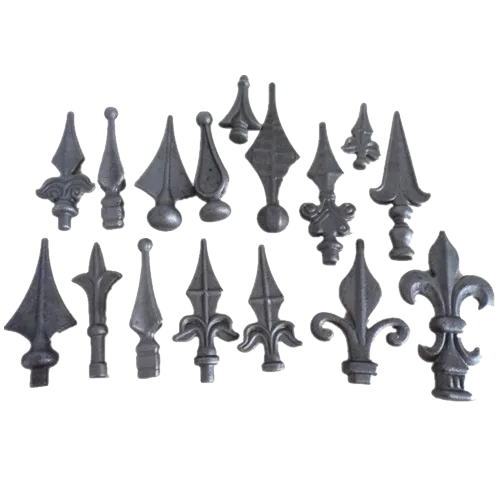Mobile:+86-311-808-126-83
Email:info@ydcastings.com
Optimizing Efficiency of Pump Motor Impeller Systems for Enhanced Performance and Durability
The Importance of Pump Motor Impellers in Fluid Dynamics
In the realm of fluid mechanics, the pump motor impeller is a crucial component that plays a vital role in the movement and management of fluids across various industrial applications. Understanding its design, functionality, and significance can shed light on the efficiency and effectiveness of pumping systems.
What is a Pump Motor Impeller?
A pump motor impeller is a rotating component within a pump that imparts energy to the fluid, causing it to flow. The basic design of an impeller consists of a set of blades that are attached to a central hub. As the impeller spins—driven by the pump motor—it creates a centrifugal force that pushes the fluid outward, increasing its kinetic energy and resulting in higher pressure at the discharge.
Types of Impellers
There are several designs of impellers, each suited to different applications and operational requirements. The two primary types are
1. Radial Impellers These are the most common type of impeller found in centrifugal pumps. The fluid enters the impeller axle and moves outward radially. This design is effective for applications requiring high flow rates with moderate pressure conditions.
2. Mixed Flow and Axial Impellers Unlike radial impellers, these allow the fluid to enter axially and exit either axially or radially. Mixed flow impellers are generally used when a balance between flow and pressure is required, while axial impellers are best for applications with high flow rates but lower pressure.
Each type has its specific advantages and is selected based on fluid properties, desired flow rates, and pressure requirements.
The Working Principle
pump motor impeller

The operational principle of an impeller is derived from Bernoulli's principle, which states that an increase in the speed of a fluid occurs simultaneously with a decrease in pressure. As the impeller turns, the blades generate a drop in pressure at the center of the impeller, drawing fluid into the pump. The centripetal motion created by the blades pushes the fluid towards the outer edge, converting mechanical energy from the motor into hydraulic energy.
This transformation is critical for hydraulic systems used in various industries, including water supply, irrigation, chemical processing, and oil and gas exploration.
Efficiency Considerations
Efficiency in pumping systems is a primary concern for engineers and operators. The design and materials used for impellers significantly influence energy consumption and performance. High-quality impellers made from corrosion-resistant materials, such as stainless steel or engineered plastics, can withstand harsh fluid environments and enhance durability.
Moreover, optimizing the impeller design—such as blade angle, spacing, and surface finish—can minimize turbulence, reduce energy losses, and improve flow rates. Efficiency losses in pumps often lead to increased operational costs, making the selection of an appropriate impeller design fundamental to system performance.
Maintenance and Troubleshooting
Regular maintenance of pump motor impellers is essential to ensure optimal functionality. Over time, wear and tear can degrade the performance of an impeller, leading to issues such as reduced flow rates, irregular vibrations, and increased energy consumption. Implementing a preventive maintenance program that includes routine inspections, cleaning, and timely replacements of worn components can significantly extend the lifespan of the pump and its impeller.
Common troubleshooting steps include checking for cavitation (which occurs when vapor bubbles form in the fluid, leading to noise and possible damage), ensuring that the pump is properly primed, and verifying that the motor and electrical components are functioning correctly.
Conclusion
The pump motor impeller is fundamental for effective fluid dynamics in various applications. Its design, operational mechanics, and maintenance demand careful consideration to ensure efficiency and reliability. As industries continue to evolve and seek innovative solutions for fluid management, advancements in impeller technology will undoubtedly play a pivotal role in optimizing performance and reducing costs. Understanding the importance of this vital component can lead to enhanced outcomes in fluid transport systems.
-
Why Should You Invest in Superior Pump Castings for Your Equipment?NewsJun.09,2025
-
Unlock Performance Potential with Stainless Impellers and Aluminum End CapsNewsJun.09,2025
-
Revolutionize Your Machinery with Superior Cast Iron and Aluminum ComponentsNewsJun.09,2025
-
Revolutionize Fluid Dynamics with Premium Pump ComponentsNewsJun.09,2025
-
Optimizing Industrial Systems with Essential Valve ComponentsNewsJun.09,2025
-
Elevate Grid Efficiency with High-Precision Power CastingsNewsJun.09,2025











